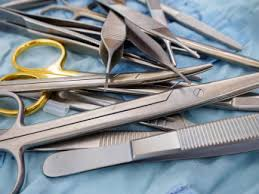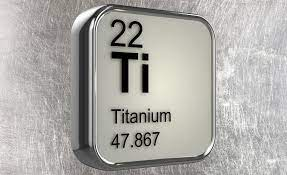With the advancement of titanium alloys, the boost in the selection of titanium products and the reduction in costs, the application of titanium in the civil market has increased. Clinical devices are divided into three degrees according to their safety and security, from high to reduced, and are supervised and managed by the 3 degrees of federal governments, respectively. Implants made of titanium and titanium alloy products belong to the third category of medical gadgets and are high-value consumables. The sub-sectors representing more than 5% of the marketplace comprise six significant sections: in vitro diagnostics, cardiology, analysis imaging, orthopedics, ophthalmology, and plastic surgery.
The application of biomedical titanium and its alloy products has undergone three iconic phases:Â First application In the early 1950s, first in the UK and the United States, business pure titanium was utilized to manufacture bone plates, screws, intramedullary nails and hip joints. The Swiss business Mathys also utilizes Ti-6A1-7Nb alloy to manufacture non-expanded locking intramedullary nail systems (consisting of shin, humerus, and femur) and hollow screws for the treatment of femoral neck bone cracks. The bioactive product of the permeable Ni-Ti (PNT) alloy produces cervical and back intervertebral blend cages (Cages).
Synthetic joints are mainly separated into artificial knees, hips, elbows, shoulders, finger and toe joints, etc. Among them, the most vital joint replacements consist of hip and knee joints, which account for greater than 95% of the globe’s joint replacement market. Spine dental implant devices consist of thoracolumbar nail plate systems, cervical back nail plate systems and fusion cage systems, amongst which intervertebral cage systems are primarily made use of for intervertebral disc substitute therapy and are likewise the most vital segment, accounting for about the whole back implant market.

Biomedical products interact with organic systems to diagnose, treat, fix or replace cells and organs in the body or boost their functions. It can be separated into medical metal products, medical polymer products, clinical ceramic products, etc. Clinical metal materials account for a huge percentage, especially orthopedic products and cardiovascular and cerebrovascular items.
Specifically, titanium alloys have been used in the clinical area due to their high strength, low density, non-toxicity, great biocompatibility and corrosion resistance, and have come to be artificial joints, bone trauma, back orthopedic inner fixation systems, and oral implants. The preferred materials for medical products include body components, synthetic heart valves, interventional cardio stents, and surgical tools.
Advantages of medical titanium alloys
â‘ Biocompatibility: Minimal organic response with the human body, non-toxic and non-magnetic, as a human implant, has no poisonous or negative effects on the human body.
â‘¡ Mechanical properties: high strength and low elastic modulus, which not only meet the mechanical demands but are similar to the elastic modulus of all-natural human bone, which can reduce the stress shielding result and is much more for the development and healing of human bones.
â‘¢ Deterioration resistance: Titanium alloy is a naturally inert product with great deterioration resistance in the human physiological atmosphere and does not pollute the human physical setting.
â‘£ Lightweight: The density of basic titanium alloy is only 57% of that of stainless steel, which substantially decreases the lot on the body after being dental implanted right into the body.
Growth background of clinical titanium alloys
Because titanium is close to human bones, has excellent biocompatibility with human cells, has no hazardous side effects, and has advantages that other materials can not match, medical titanium alloys have been commonly used in the medical area.
As biomedical practical materials, metal materials are a crucial branch of materials science and have been used in human implants for over 400 years.

Biomedical titanium alloys have actually undergone three procedures:
- Pure titanium and Ti-6Al-4V titanium alloys.
- Changed titanium alloys.
- Low-modulus beta titanium alloys.
1950-1980: Pure titanium was used in biomedicine for the first time, verifying great biocompatibility. Ti6Al4V is commonly utilized in surgical repair work or replacement products. 1980-1990: It was verified that V and Al are elements with harmful adverse effects on living organisms, and the 2nd generation of boosted new clinical titanium alloys utilizing Nb and Fe instead of V was established. 1990-present: In the early 1990s, the first beta titanium alloy Ti13Nb13Zr, with far better biocompatibility and lower flexible modulus, was created, which began the advancement and use of biomedical beta titanium alloys with exceptional properties.
Applications of titanium and titanium alloys in the medical field
Recently, titanium and its alloys have experienced extraordinarily fast development in the clinical area, concentrating on cosmetic surgery, dental care, and various clinical tools.
Body orthopedics
The elastic modulus of titanium alloys is closer to human bones than stainless steel, so titanium alloy elbow joints, ankle joints, etc, are commonly utilized in human orthopedic surgeries. Roughly 100 million individuals around the world call for replacement treatment for arm and knee joint inflammation each year. Titanium kneeboards are much lighter than stainless-steel kneeboards, and corrosion problems are improved. Currently, titanium prostheses are slowly changing steel prostheses.
Dental care
From the moment titanium alloy is dental implanted in the human body, metal materials for oral implants have undertaken a series of changes. Titanium is fond of human skeletal epithelial tissue and connective cells, and its mechanical homes approach various other sorts of dental alloys. Its thickness is reduced, and the dentures feel comfortable. Not only that, titanium dentures travel through the surface area. Handling can also meet the needs of stunning teeth.

Face Therapy
Regional tissue repair service requires surgical implants when human face cells are seriously damaged. Titanium alloy has good biocompatibility and required stamina, making it an ideal human face cell repair product. Pure titanium mesh has been used in bone repair surgery as a bone brace.
Surgical tools
Titanium clinical devices have great deterioration resistance, and the surface top quality will not be impacted by duplicated cleaning and disinfection; they are non-magnetic, which can eliminate the danger of damage to small and delicate implanted devices; they are lightweight, and can be used to replace stainless steel to significantly lower the weight, making Doctors are a lot more versatile throughout operations and reduce their fatigue. As a result, it has been utilized to make scalpel blades, hemostats, scissors, electric bone drills, tweezers, and so on.
The benefits of medical titanium and titanium alloy materials have been recognized by the medical community and approved by more and more clients. Considering the elements of battle, sports trauma, and improving individuals’ living criteria, titanium and titanium alloys are the front runners for the human body. Implants have wonderful room for growth and will become a brand-new financial growth point in advancing titanium applications.
Supplier
TRUNNANO is a supplier of Spherical Titanium Powder with over 12 years experience in HPMC, It accepts payment via Credit Card, T/T, West Union and Paypal. Trunnano will ship the goods to customers overseas through FedEx, DHL, by air, or by sea. If you are looking for high-quality Spherical Titanium Powder, please feel free to contact us and send an inquiry.
Tags: titanium alloy
